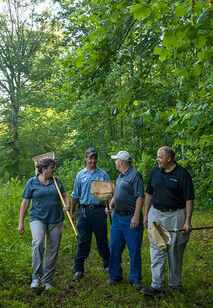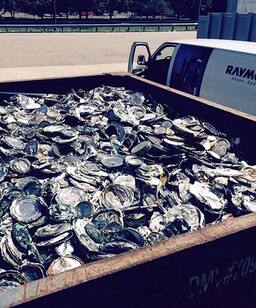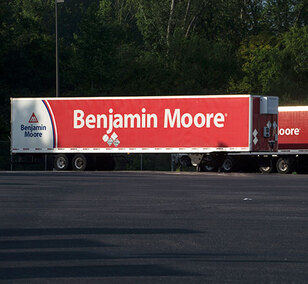Environment Protection

Our employees are engaged in environmental stewardship at work and in the community. They are committed to minimizing our impacts on the planet and nurturing the plants and animals living around us.
Benjamin Moore’s comprehensive system of environmental management extends through the entire life cycle of product innovation, development, production and disposal. We manage energy and water use, air emissions and waste generation—all in an effort to run our facilities in the most efficient manner possible. We also protect the species and habitats that call our sites home.
Compliance
Benjamin Moore is committed to operating our businesses safely and responsibly and in compliance with all regulations. We are dedicated to protecting the health, safety and security of our employees, as well as sustaining the quality of the environment for future generations. Our compliance with applicable environmental, health safety, security (EHSS) and product safety laws and regulations is vested in the operating management of the Company. An EHSS Leadership Committee has been established to oversee such compliance and performance, as well as EHSS issues affecting the Company. The mission of the EHSS Leadership Committee is to drive a consistent and systematic approach to environmental, health, personal and process safety and security management resulting in a strong, positive safety culture and improved performance.
Our activities in manufacturing and distributing paints and coatings are subject to various environmental, health, safety and transportation regulations. Benjamin Moore reports significant violations of these regulations—those resulting in fines of $5,000 or more and/or in an impact to the environment. We’ve had no significant regulatory violations at our manufacturing or distribution facilities in more than 5 years.

Waste management
Benjamin Moore is continually exploring new ways to maximize our resources while reducing waste. Our Distribution Centers ship hundreds of thousands of gallons of paint per day. With this comes the potential to generate a lot of waste. We have recognized these recycling opportunities and have established sound programs around recycling pallets, paint, corrugated cardboard, shrink wrap and in some locations, colorant cans from our tinting process.
Our employees are constantly looking for ways to reduce waste at the source and increase reuse and recycling. Washwater is re-used to minimize the amount of make-up water needed in the manufacturing process.
Benjamin Moore is a contributing board member of PaintCare in the U.S. and Product Care in Canada, nonprofit organizations that manage industry-wide programs to collect leftover paint for reuse, recycling or safe disposal. Our shared goal is to expand these programs so that all post-consumer paint is handled effectively and responsibly.

Energy management
Benjamin Moore uses electricity for lighting, operations and processing; natural gas for heating; and diesel for our fleet of trucks. Moving towards greater energy efficiency and seeking alternative energy options makes good business sense and helps us reduce greenhouse gas emissions.
We utilize CNG vehicles in California and host a solar array at our research and development facility—purchasing electricity generated by the system. We are currently evaluating the feasibility of installing a solar array at our corporate headquarters. Many distribution centers have installed high efficiency lighting with motion sensors and a comprehensive energy audit has identified near and long term savings opportunities—many of which are underway.

Sustainable transportation
Benjamin Moore has 130 branded trucks in our delivery fleet. We are optimizing loads, streamlining routes and equipping all new trailers with aerodynamic features and idle restrictors. These efforts translate into better fuel efficiency, reduced costs and fewer greenhouse gas emissions. Since 2009, we have saved more than $2.9 million and more than 929,250 gallons of fuel. That’s more than 9,605 metric tons of carbon dioxide avoided, equivalent to the emissions from 2,029 passenger vehicles driven for one year. In our Clifton, NJ, distribution center, we are testing solar energy to power trailer lift gates and electric pallet jacks.

Biodiversity
Our employees care about the wildlife that call our sites home. Our research and development center in Flanders, NJ, and our manufacturing facility and distribution center in Pell City, AL, have earned Conservation Certification from the Wildlife Habitat Council (WHC), a nonprofit group dedicated to restoring and enhancing wildlife habitat.
Both our Pell City, AL, site and our Flanders, NJ, sites are certified to the Silver level. The wildlife teams at these locations manage a total of 67 acres providing habitat for native birds and pollinators and removing invasive species. The outdoor classroom at our Alabama site uses the Fishing Creek Wetlands Habitat as the integrating grounds of a formal conservation education experience for local middle and high school students, focused on topics linked to classrooms subjects and state STEM education requirements. Themes include water quality monitoring, wetlands species identification and inventory, and planting and native food sources.
